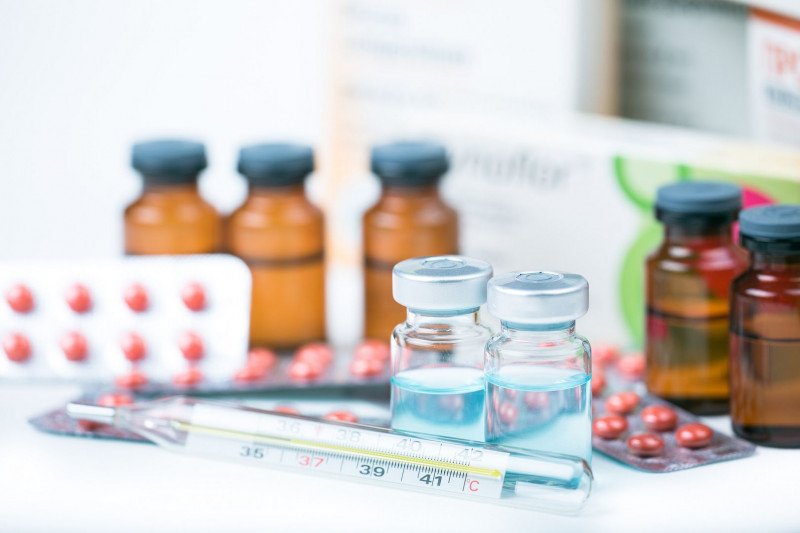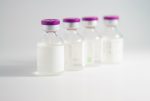Risk of Severe COVID-19 Not Raised by Immunosuppressive DMTs
Written by |

Santyaga/Shutterstock
Exposure to multiple sclerosis (MS) disease-modifying therapies (DMTs), and particularly immunosuppressive DMTs, does not increase the risk of developing a severe form of COVID-19, or of dying from the disease, when adjusting for known risk factors, an Austrian registry-based study found.
These findings add to data showing no link between the use of DMTs and any higher risk of contracting COVID-19. Moreover, an increasing number of studies, including this one, have reported no association between DMTs use and a patient’s risk of developing worse disease.
Together, the data suggest that treatments for most MS patients, who typically have low to moderate risk of severe COVID-19 outcomes, should be aimed at providing the best possible care, regardless of the pandemic, the researchers noted.
“This provides reassuring evidence that COVID-19 risk can be individually anticipated in MS and — except for a very small proportion of high-risk patients — treatment decisions should be primarily focused on treating MS rather than the pandemic,” they wrote.
The study, “COVID-19 severity and mortality in multiple sclerosis are not associated with immunotherapy: Insights from a nation-wide Austrian registry,” was published in the journal PLOS ONE.
In the general population, it is well established that COVID-19 severity and mortality increase with older age and the presence of simultaneous health conditions, such as cardiovascular disease, lung disease, diabetes, chronic kidney disease, cancer, obesity, and smoking.
Advanced physical disability was previously reported to be an additional risk factor of worse COVID-19 outcomes in MS patients.
However, “one of the most pressing questions in managing [MS patients] during the pandemic is whether immunomodulatory or immunosuppressive DMT increase the risk for COVID-19 severity and mortality,” the researchers wrote.
As their names suggest, immunomodulatory and immunosuppressive DMTs — the mainstay of MS treatment — generally work by suppressing the immune system to dampen the abnormal immune responses that drive nerve cell damage in MS.
In theory, these therapies also may limit the immune system’s ability to fight viruses like SARS-CoV-2, the one causing COVID-19, which in turn would increase the chances of severe disease.
However, “evidence regarding the effect of DMT on the course of COVID-19 is as scarce as direly needed for guiding [patients with] MS through the pandemic,” the researchers wrote.
To address this gap, scientists in Austria carried out a study involving 126 MS patients, with a mean age of 43.2, who had an established virus diagnosis between January 1 and December 31, 2020. All patient data came from the Austrian MS-COVID-19 registry.
The team analyzed COVID-19 frequency, severity, and mortality in these patients, as well as the impact of specific DMTs, after adjusting for known risks.
The results showed that the estimated COVID-19 infection rate among the Austrian MS population was 4.1%, which was “well within the range of the general population,” the researchers wrote.
In further agreement with statistics reported for the general population, most MS patients (86.5%) had a mild infection. Less than one-tenth of patients (9.5%) had a severe course, while 4% showed no symptoms. Four individuals (3.2%) died from COVID-19.
Notably, based on available data from 103 patients, and similar to other studies, the team found no significant association between low counts of certain immune cells and COVID-19 severity or mortality.
The team then divided the patients according to their risk of COVID-19-related death based on the recently developed MS-COV-risk score. That scale takes into account all known general risk factors, in addition to MS-related physical disability — as assessed with the expanded disability status scale (EDSS).
Based on this score, most patients (59.5%) had a low risk of dying from COVID-19. The risk was mild for 30.9% of patients, with 6.3% showing moderate risk, and 3.2% having a high risk.
Notably, when accounting for sex and low levels of immune cells, this risk score could significantly predict 81% of the variation in COVID-19 severity and 66% of its associated mortality.
This not only validated the predictive ability of the MS-COV-risk score, but also confirmed that patient outcomes are “largely determined by factors independent of MS and, thus, can be anticipated,” the researchers wrote.
To assess the impact of DMTs in COVID-19 severity and mortality, the team then grouped patients based on their DMT status at the time of infection: as either receiving immunomodulatory DMTs (38.1%), immunosuppressive DMTs (32.5%), or no DMT (28.6%).
Immunomodulatory DMTs included Tecfidera (dimethyl fumarate), glatiramer acetate (Copaxone and Glatopa), interferon-beta preparations (such as Avonex, Rebif, and Betaseron), Tysabri (natalizumab), and Aubagio (teriflunomide).
Immunosuppressive DMTs (IS-DMT) comprised Lemtrada (alemtuzumab), Mavenclad (cladribine), Gilenya (fingolimod), Ocrevus (ocrelizumab), and rituximab. Approved for treating various types of blood cancer, rituximab is frequently used off-label in MS.
When adjusting for the risk score, sex, and immune cell counts before infection, exposure to DMTs was not significantly associated with COVID-19 severity or mortality, when compared with no DMT use.
Similar findings were obtained for immunomodulatory DMTs and immunosuppressive DMTs, highlighting that MS patients using DMTs — including those that suppress the immune system — were not at higher risk of developing a more severe infection or of dying from it.
“COVID-19 outcome was not associated with exposure to DMT and immunosuppressive DMT when accounting for other already known risk factors,” the researchers wrote.
Notably, most MS patients at high risk of severe COVID-19 are not prescribed DMTs. In fact, in the current study, none of the four individuals at high risk were on DMTs. Therefore, the scientists concluded, “the question of stopping or delaying DMT hardly arises.”





